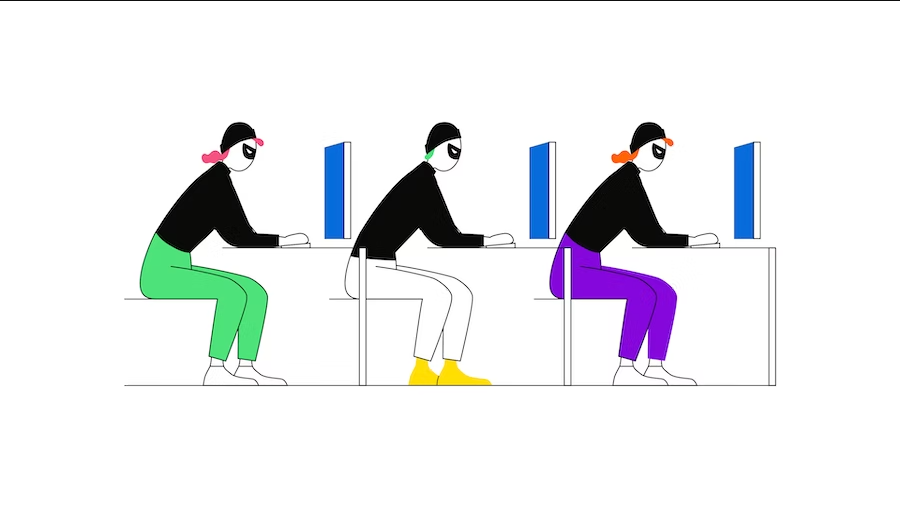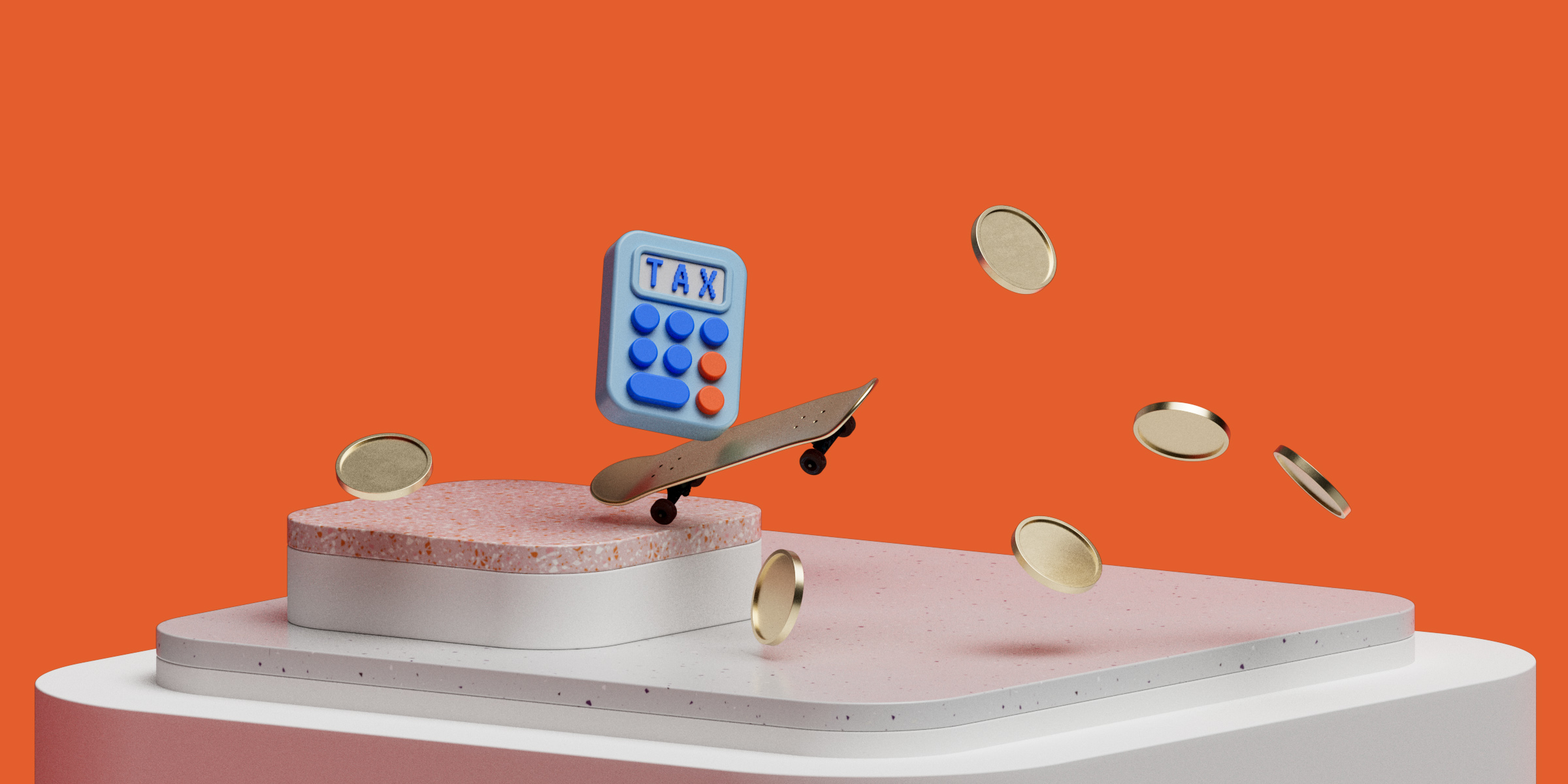Depending on factors such as where you live and how high your salary or wages are, your income is subject to income tax. The more you make, the more you pay if your income is taxed in a country with progressive income tax rates. In countries with flat income tax rates, all incomes are taxed at the same flat rate.
Your income in slices - an example
But how does cold progression influence your income tax situation? Let’s make up a small example to illustrate how bracket creep, also called “cold progression” or “tax progression” affects the amount you actually have left for spending after taxes are deducted - the disposable income you have left.
In our example, you have an annual salary of EUR 49,000 gross. “Gross” in this case means before taxes and contributions are deducted from this amount - not the money that you actually get to keep. You are now told your salary is going to increase by 3% - i.e. by around EUR 105 gross per month going forward. That makes you happy, only for you to realise that you are now only receiving around EUR 54 net (i.e. the amount you actually have left to use) more disposable income per month than before the increase. Why is this?
The answer: if you are now earning more, your income may be subject to higher tax rates. Every time you receive a salary increase, your salary will usually be subject to higher taxes than your previous salary. But things are not that simple: for purposes of taxation your salary is split into different components. Each component of the total amount is subject to a different percentage of tax.
Imagine it the following way: your salary is a cake that is cut into slices and each slice is subject to a different percentage. For instance, the first ”slice” between EUR 11,000 and EUR 18,000 could be subject to 20%, while the second “slice” with the amount between EUR 18,000 and EUR 31,000 is subject to 30% and so forth - the higher the amount range, the higher the percentage.
In other words, your income falls into several different brackets. This is where the term “bracket creep” comes from: the higher the bracket, the higher the percentage creeping up. Owing to tax progression, your net income (after tax) increases less than your gross income (before tax) and that is one reason you feel you have so little left to spend. The other reason is inflation.
Not to forget inflation
Remember our recent article about inflation? You learned that the phenomenon of inflation changes the ratio between money and goods or services. As inflation increases, you need more money to get the same amount of a good or service.
As we just worked out, your net income is growing more slowly than your gross salary due to bracket creep. But if inflation rates are also on the upswing, this means that you cannot really afford to spend more than before your salary increase in the example. Your actual purchasing power has not really improved despite your new salary. In order to change this, tax brackets would regularly need to be adjusted upward in line with development of inflation, which is usually not the case.
Consequently, there is a difference between your nominal income (your income that has not been adjusted for decreasing purchasing power) and your real income (your income taking into account decreasing purchasing power).
Why is nothing being done about cold progression?
As mainly lower and middle incomes - that are obviously earned by the large majority of people in a country - are affected, governments receive substantial amounts of funds thanks to cold progression which they can use to fund measures that voters had previously been promised during election times. Still, especially in those nations where tax rates are not adjusted according to inflation rates, whether governments should abolish cold progression remains a subject of heated debate.
Are you looking to invest regularly over a long period of time? With Bitpanda Savings, you can invest in various assets such as Bitpanda Stocks*, crypto and precious metals. Discover your favourite assets on our platform and invest at regular intervals: once a week, every fortnight or every month - the choice is yours.
Simply download the Bitpanda mobile app for iOS or Android on your mobile phone, register and verify yourself within a few minutes, choose your preferred payment option and deposit your starting balance - you can register your Bitpanda account here.
*Bitpanda Stocks enables investing in fractional stocks. Fractional stocks in Europe are always enabled via a contract which replicates the underlying stock or ETF (financial instruments pursuant to section 1 item 7 lit. d WAG 2018). Investing in stocks and ETFs carries risks. For more details see the prospectus at bitpanda.com.
 Commodities* Invest in commodities 24/7
Commodities* Invest in commodities 24/7 BITCOIN What to know when you are just starting to invest
BITCOIN What to know when you are just starting to invest ASSET MANAGEMENT Your investment, your assets: Why your money is safe with Bitpanda
ASSET MANAGEMENT Your investment, your assets: Why your money is safe with Bitpanda COUNTDOWNBitcoin Halving Countdown 2024
COUNTDOWNBitcoin Halving Countdown 2024 ACADEMYWhat is the Bitcoin halving?
ACADEMYWhat is the Bitcoin halving?






